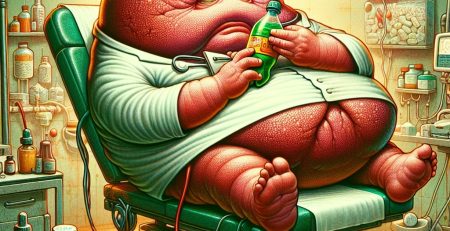Debunking 5 Sleep Myths: Uncover Truths to Better Snooze
You’ve likely heard many things about what it takes to get a good night’s sleep. From old wives’ tales to so-called hidden truths that have circulated the internet, it’s hard to distinguish fact from fiction. Let’s debunk five common myths that stand between you and the restful slumber you deserve.
Myth 1: You Can Catch Up On Sleep Over The Weekend
You believe that burning the midnight oil during the week and then hibernating on the weekends will keep your sleep debt balanced. Unfortunately, your body begs to differ. Sleep doesn’t work like a bank account; you can’t deposit hours of rest on Saturday to make up for those lost on weekdays. This approach can actually disturb your natural sleep-wake cycle (circadian rhythm), leading to poorer quality sleep in the long run. Consistent sleep routines are your ticket to boarding the dreamland express every night.
Myth 2: Alcohol Helps You Sleep Better
You’ve perhaps unwound with a glass of red wine before bed, thinking it’ll send you off to dreamland faster. While alcohol might make you fall asleep quicker, it’s actually disruptive to the quality of your sleep. Alcohol reduces REM sleep, the most restorative phase, which can leave you feeling groggy and unrefreshed in the morning. If you’re looking for a nightcap, consider a warm cup of herbal tea instead.
Myth 3: Watching TV in Bed Helps You Relax
You turn on the TV to unwind before sleep, but instead of guiding you to slumberland, it does the opposite. Screens emit blue light, which can inhibit the production of the sleep hormone melatonin. Rather than relying on Netflix to lull you to sleep, opt for more calming pre-sleep rituals. Reading a book, listening to soft music, or practicing relaxation techniques can set a more conducive atmosphere for sleep.
Myth 4: If You Can’t Sleep, You Should Stay in Bed Until You Do
Tossing and turning under the covers with the expectation that sleep will eventually come seems logical. Yet, this can create an association between your bed and frustration from not being able to sleep, making it even harder to nod off. If you can’t fall asleep after 20 minutes, it’s better to get up, do something relaxing in a dimly lit area, and return to bed when you feel sleepier. This helps reinforce your bed as a cue for sleep, not wakefulness.
Myth 5: The More Sleep, the Better
You might think snagging as many hours of sleep as possible is akin to giving your body extra TLC. However, there’s such a thing as too much sleep. Oversleeping can lead to feelings of grogginess, and, like undersleeping, has been associated with health issues such as diabetes, heart disease, and depression. Most adults need between 7 to 9 hours of sleep per night. Aim for this sweet spot to wake up feeling rested and recharged.
Understanding the realities behind these myths not only improves your quest for quality sleep but also elevates your overall health and well-being. Remember, good sleep isn’t a myth; it’s a well-deserved reality you can achieve with the right practices. Sweet dreams!












